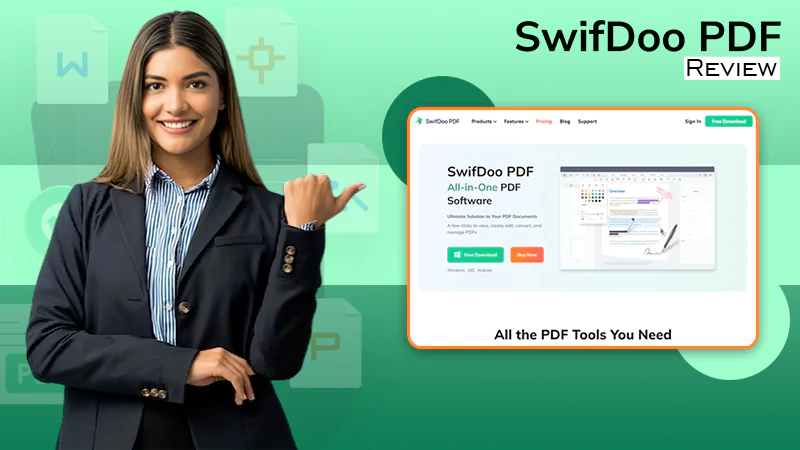Key Features of Banking Software
Did you know that there is special banking software that allows you to automate most work processes? This is a convenient development that takes on some of the responsibilities. In this article, we will talk about this in more detail.
Why Do You Need Banking Software?
Banking software helps manage, track, and record transactions at banks and other financial institutions. This software helps manage front-office services such as customer acquisition, portfolio management, and sales of key banking products. It also offers back-office features such as credit approval, auditing, financial accounting, background checks, and system integration. When you contact banking software companies to discuss development details, you can determine which features you need there and which you don’t. If this is an order for individual software, then you yourself regulate its functionality.
In addition to managing front and back office services, banking software also provides security features such as fraud detection and prevention, user authentication, and data encryption to ensure the safety of financial transactions and customer data.
Another important aspect of banking software is its ability to integrate with other systems and platforms, such as payment gateways, third-party applications, and regulatory compliance tools. This helps financial institutions streamline their operations and ensure compliance with industry regulations.
In today’s digital age, the banking software is becoming increasingly important as more financial transactions are conducted online and via mobile devices. By leveraging the power of advanced technology, financial institutions can enhance their customer experience, streamline their operations, and remain competitive in a rapidly evolving industry.
When choosing a banking software solution, it’s important to consider factors such as the size and complexity of your institution, the level of customization and support you require, and the cost and scalability of the software. Working with a reputable and experienced software development team can help ensure that your banking software solution meets your specific needs and provides the necessary functionality to effectively manage your institution’s operations.
Benefits of Banking Software
If not for such developments, it would be difficult for banks to keep records and perform most services. Therefore, the banking software is a necessary thing that offers you the following benefits:
- Offer multiple transaction options: Modern banking software supports the current evolution of financial transaction models both in physical offices and via computers or smartphones. This easy accessibility increases customer satisfaction and loyalty.
- Promotion of paperless systems: The digitization of the banking sector has made it possible to move from paper transactions to screens. This virtually paperless management frees up real estate space by reducing the need to store heavy and bulky filing cabinets, while also providing a secure way to back up data. It also helps save paper.
- Automate workflows: Using banking software allows you to automate the most tedious tasks, such as entering data and sending notifications to customers. This eliminates the risk of errors associated with manual data entry and saves employees time so they can focus on serving their customers.
- Improve accuracy and efficiency: Banking software helps financial institutions manage and track transactions more accurately and efficiently. By automating various processes, such as data entry and record keeping, the software reduces the risk of errors and increases the speed and accuracy of transactions. This, in turn, improves the overall efficiency of the bank’s operations and helps provide better services to customers.
- Enhance security: One of the most critical benefits of banking software is the increased security it provides. With features such as encryption, firewalls, and two-factor authentication, banking software helps safeguard sensitive customer data and prevent fraud and other security breaches. This enhances the overall trust and confidence of customers in their financial institution and helps maintain the reputation and credibility of the institution.
- Better data analysis and reporting: Banking software provides powerful reporting and analytics capabilities, enabling financial institutions to make informed decisions based on real-time data. By leveraging data analysis and reporting tools, banks can identify trends, track customer behavior, and develop targeted marketing strategies. This helps financial institutions stay competitive, grow their customer base, and increase their profitability.
In conclusion, the banking software is an essential tool for financial institutions in today’s digital age. It offers a range of benefits, including improved efficiency, enhanced security, better data analysis, and increased customer satisfaction. As the banking industry continues to evolve, investing in modern banking software solutions is crucial for financial institutions looking to stay competitive and meet the changing needs of their customers.
General Functions of Banking Software
Of course, each development has its own characteristics, but still, there are common features that are present in almost every software.
- Compliance Monitoring: Ensure that business processes are performed in accordance with legal and industry regulations.
- Maintain a database of contacts: create and maintain a centralized repository of customer data.
- Transaction Monitoring: Analyze customer transactions, activity history, and account profiles for any suspicious activity.
- Carry out basic banking processes: create new accounts, register transactions in real-time, process payments, and automate the calculation of interest on loans.
- Offer online banking: Allow customers to transact from computers or mobile devices.
- Provide account management: Banking software offers comprehensive account management functions, such as updating account information, transferring funds between accounts, setting up automatic payments, and generating account statements.
- Credit Scoring and Loan Management: Banking software allows financial institutions to evaluate customers’ creditworthiness and manage the loan application process, including the underwriting, approval, and disbursement of loans.
- Integration with Third-Party Tools: Banking software integrates with other financial tools, such as payment processors, accounting software, and tax software, to streamline financial management processes.
Considerations When Buying Banking Software
Before choosing such a development, you should pay attention to some points. Let’s consider them in more detail:
- Interface and flexibility. The financial environment is highly regulated and any policy changes must be made immediately. Choose software that is flexible enough to adapt to market changes.
- Data security. As cybercrime levels are on the rise, customers are increasingly concerned about the security of their data when banking online. Banks must ensure the security of their customer information and restrict third-party access to data. The banking software of Your choice should offer two-factor authentication or more. It must also be able to encrypt data transmitted over the Internet and filter network traffic to prevent malicious access to the central database.
Current Trends in Banking Software
With the rapid development of modern technology, it is quite difficult to follow all the trends. However, there are two main areas that interact well with banking software.
Let’s talk about Artificial Intelligence (AI) first. It can be exchanged in banking, during the provision of financial services, and insurance. Banks with AI-based solutions can use information about customers (such as their preferences and interests) to provide a personalized banking experience. You will be able to better understand the needs of your customers and offer them the right solution. This increases the loyalty of visitors and improves their customer experience. AI-powered chatbots and advisory bots are also becoming popular in the banking environment, increasing efficiency and reducing costs.
In addition to AI, you can also use cloud technologies. With their help, you can store data and manage it easily from different devices. Most systems use cloud technologies for their projects because it is convenient and provides many advantages. Such technologies reduce infrastructure costs and streamline business operations. While cloud banking software is not yet a popular trend, banks and credit unions should consider this rate as one of the hottest technology trends in the coming years.
Level Up Your Online Presence: How iTop Screen…
Vidnoz AI Review: How to Convert Text to…
HitPaw Online Video Enhancer Review and Its Best…
Top 7 Background Removers Online in 2024
How to Retrieve Google Backup Photos?
How Does The Image-To-Text Tool Work?
SwifDoo PDF Review 2024: A Comprehensive Look
The Real Benefits of DevOps Training for Aspiring…
Capturing Serenity: Elevating Yoga Pose Photos with CapCut’s…
Single CPU Server vs Dual CPU Server: What’s…
Boost Your Productivity with a Desktop-Docked Search Utility…












